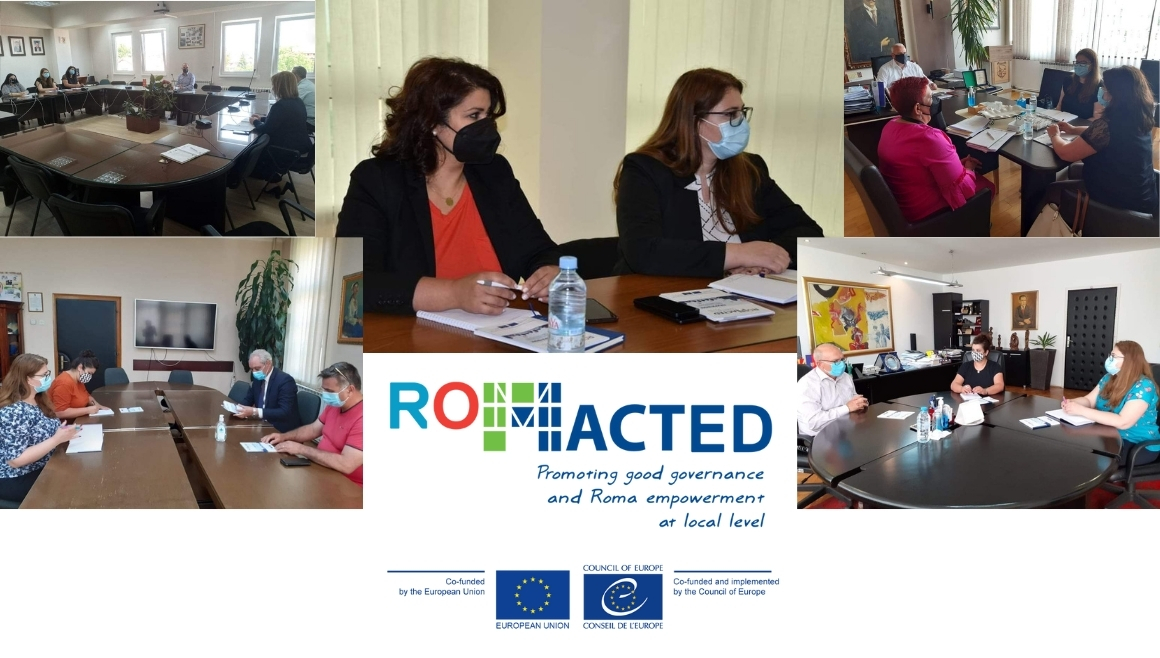Initial visits of the ROMACTED 2 Support Team were organised to 15 partner municipalities in North Macedonia within the joint EU/CoE ROMACTED Programme. The meetings took place from 7 to 24 June in Shuto Orizari, Kriva Palanka, Veles, Berovo, Delcevo, Kocani, Stip, Vinica, Strumica, Gostivar, Debar, Kicevo, Tetovo, Prilep and Bitola. The visits were organised and attended by the ROMACTED Project Officer from the Council of Europe Programme Office in Skopje and the Focal Point from the Support Organisation “Institute for Policy Analysis - ROMALITCO”.
These meetings with mayors and municipal officials served to confirm the political commitment of the local authorities to the implementation of the ROMACTED Programme Phase II (2021-2024).
The Support Team discussed the programme activities, such as the signature of the Memoranda of Understanding between the Council of Europe, Ministry of Labor and Social Policy and the local authorities, as well as other activities planned within ROMACTED Phase II and ROMACTED methodology. The timeline of visits:
7 June – Bitola and Kriva Palanka
8 June – Shuto Orizari
14 June – Debar and Kicevo
15 June – Tetovo and Gostivar
16 June – Stip and Kocani
17 June - Vinica
21 June – Delcevo and Berovo
22 June – Prilep and Veles
23 June - Strumica
The joint European Union/Council of Europe ROMACTED Programme Phase 2, which will run from 2021 to 2024, is a natural follow-up of ROMACTED Phase I. It will serve to consolidate and expand efforts to improve the integration of Roma populations in local communities through enhanced participation in local policymaking and implementation of local actions. ROMACTED II will continue to assist the local authorities to integrate Roma specific dimensions/measures into the mainstream local policies, action plans related to these policies, budgets, and public service delivery, thereby enhancing democratic participation and empowerment of local Roma communities.




